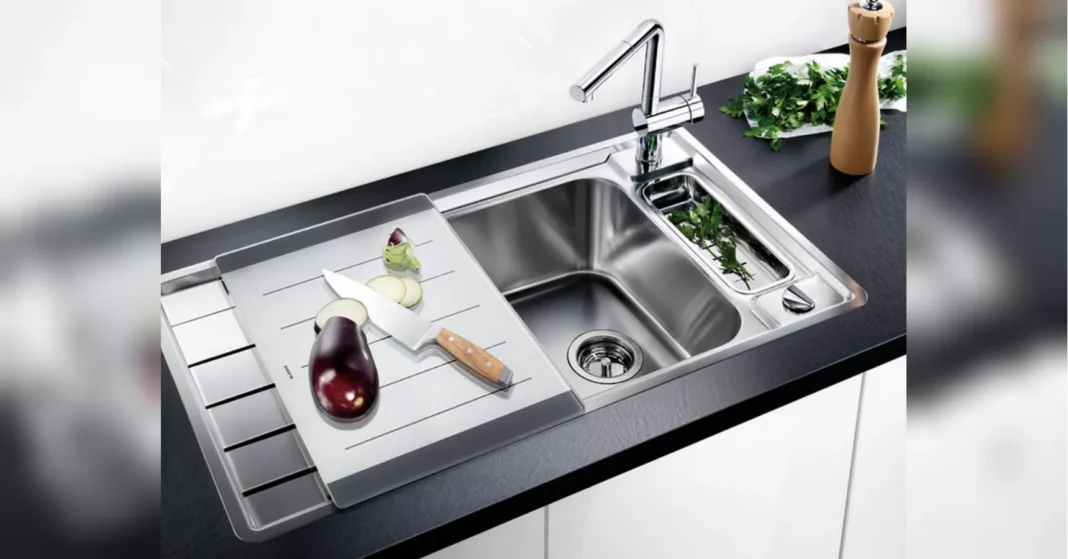According to a specialist, your kitchen sink may be dirtier than your toilet. This may come as a surprise to many, as we often associate the toilet with being the dirtiest area in our homes. However, the specialist explains that the environment in and around the kitchen sink is actually more conducive to the growth and spread of bacteria.
The kitchen sink is a prime location for bacteria to thrive due to the constant presence of moisture and food particles. Every time we wash our hands, rinse fruits and vegetables, or clean dishes, we are introducing new bacteria into the sink. These bacteria can then multiply and spread, creating a breeding ground for potential illness-causing germs.
One of the main reasons for the high level of bacteria in the kitchen sink is the presence of food particles. Even if we think we have thoroughly cleaned our dishes, there are often small bits of food left behind that can easily get stuck in the sink and provide a food source for bacteria. This is especially true for dishes that have been used to prepare raw meat, which can contain harmful bacteria such as E. coli and Salmonella.
Another factor contributing to the dirty state of our kitchen sinks is the lack of proper cleaning. Many people simply rinse their sinks with water after use, thinking that this is enough to keep it clean. However, this is not the case. In fact, a study conducted by the National Sanitation Foundation found that kitchen sinks are one of the top five germiest places in the home. This is because water alone is not enough to remove all the bacteria and food particles that have accumulated in the sink.
So, what can we do to keep our kitchen sinks clean and free from harmful bacteria? The specialist recommends regularly disinfecting the sink with a solution of hot water and bleach or a commercial disinfectant. It is also important to scrub the sink with a brush or sponge to remove any food particles that may be stuck. Additionally, make sure to clean the sink after preparing raw meat to prevent the spread of bacteria.
It is also important to pay attention to the area around the sink. Often, water and food particles can splash onto the surrounding countertops and create an ideal environment for bacteria to grow. Make sure to wipe down the countertops regularly and disinfect them as well.
But why is it so important to keep our kitchen sinks clean? The specialist explains that the bacteria present in the sink can easily transfer to our hands, dishes, and utensils, and then onto our food. This can lead to foodborne illnesses, which can range from mild stomach discomfort to more serious conditions. Children, the elderly, and those with weakened immune systems are especially vulnerable to these illnesses.
In addition to the health risks, a dirty kitchen sink can also affect the overall cleanliness and appearance of our homes. No one wants to cook or eat in a kitchen that is visibly dirty and potentially hazardous to their health. By keeping our kitchen sinks clean, we are not only protecting ourselves and our families, but also maintaining a hygienic and inviting living space.
In conclusion, it is clear that our kitchen sinks can be a breeding ground for bacteria if not properly cleaned and maintained. The constant presence of moisture and food particles creates an ideal environment for bacteria to thrive and spread. To keep our kitchen sinks clean and free from harmful germs, it is important to regularly disinfect and scrub the sink, pay attention to the surrounding area, and clean up after preparing raw meat. By taking these simple steps, we can ensure a healthier and more pleasant kitchen environment for ourselves and our loved ones.

